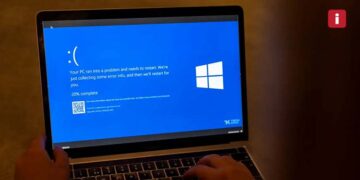WhatsApp Blocked from U.S. House Devices Citing Data Risk
In a crucial step to bolt cyber security protocols, the US representative assembly has formally prohibited the use of WhatsApp on all state equipment. The instructions issued by the House’s Chief Management Manager (CAO) classify the metaide message app as a high -risk platform, which emphasizes the increasing concern in government circuits on digital privacy and data security.
According to a memorandum, the limitation is used on all devices – including smartphones, desktops and browsers – and CAO is in the fact that WhatsApp is described as a lack of sufficient transparency on how the WhatsApp user handles the data.
Why are WhatsApp is now considered a risk
Caos Cyber Security Office cited several main reasons for the ban, including:
- WhatsApp’s alleged lack of clarity in data security practice.
- No data stored in spite of standard and-to-end encryption for messages during transport.
- Broader concerns over potential vulnerabilities that may expose sensitive communications.
While the platform is popular for both individual and commercial use globally, home officials clearly indicate a zero -pressure approach to the apps that do not meet the internal security measurement.
Meta replies: “We strongly disagree”
WhatsApp’s original company Mata has pushed behind the ban. In a statement that was posted to social media, the director of communication of Andy Stone said, and defended the security facilities of the app:
“We disagree with grading in the strongest possible words in the house’s chief administrative officer. We know that members and their employees regularly use WhatsApp, and we are ready to ensure that they can continue to make it safe.”
The company emphasized that the WhatsApp standard provides end-to-end encryption, which claims that the house provides strong security compared to several other apps approved by the house staff.
Approved Communication Alternatives for House Staff
To maintain secure communication channels, the CAO has directed staff to use alternatives that meet internal security protocols. Recommended apps include:
- Microsoft Teams
- Amazon Wickr
- Signal
- Apple iMessage and FaceTime
Each of these platforms is regarded as offering greater transparency, secure data storage, and verified encryption measures suitable for official government use.
Not the First Ban | A Broader Pattern Emerges
This isn’t the first time the U.S. government has restricted access to popular consumer technology platforms. The House has previously banned:
- TikTok, over data-sharing concerns linked to Chinese ownership
- OpenAI’s ChatGPT, amid fears of uncontrolled AI-generated content
- DeepSeek, another generative AI tool facing transparency issues
The WhatsApp decision reflects a broader institutional shift toward tighter cybersecurity oversight—a move likely to influence future regulations and app usage across federal agencies.
Poor implication for technical policy and message -app
This restriction outlines growing games for technical companies, whose platforms are widely used equally by governments and companies. As the standards of cyber security become tough, especially in sensitive areas such as public management, platforms will not only require strong encryption, but also operational transparency and responsible data processing.
This decision can also give way to how other reporting apps make contact for compliance with government standards, potentially affects how data is stored, encrypted and the audit.
looking forward
When federal agencies navigate the rapidly developed digital landscape, the WhatsApp ban from the US house may indicate the outbreak of a more aggressive security veterinarian in all state use platforms. For Meta, it marks a prestigious challenge, especially at a time when WhatsApp searches for mudification through advertising in the app while maintaining its attitude towards privacy.
This decision affects the adoption trend in the private sector. However, it is clear that the intersection of technology, policy and privacy is closer than ever.













































